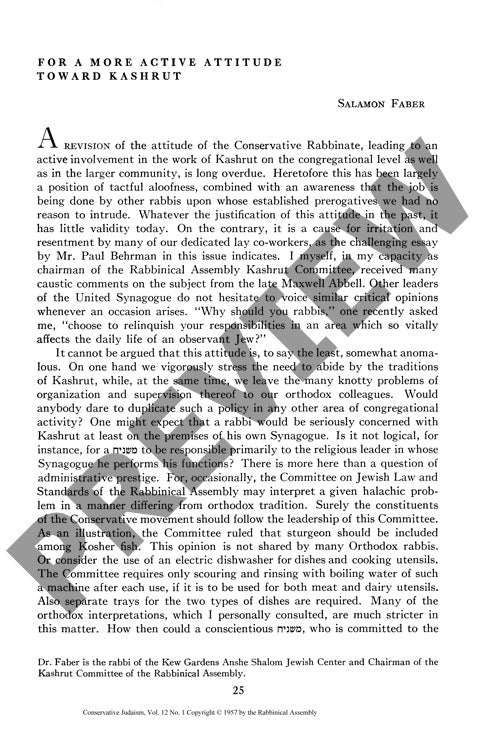For a More Active Attitude Toward Kashru
Couldn't load pickup availability
Conservative rabbis have long maintained a "tactful aloofness" from kashrut supervision, deferring to Orthodox authorities despite fundamental interpretive differences between the movements. This passive approach has created a disconnect between Conservative Jewish dietary law interpretation and actual communal practice. Through analysis of specific halakhic disagreements—such as rulings on sturgeon and electric dishwasher protocols—the research demonstrates how Conservative interpretations meaningfully diverge from Orthodox standards, necessitating independent supervision systems. Case studies from Connecticut and Philadelphia regions reveal successful models where Conservative rabbinical assemblies implemented their own kashrut committees and hotel supervision programs. Economic analysis of Minneapolis meat distribution data challenges common assumptions about kosher pricing, showing that retail operational costs, rather than rabbinical supervision fees, drive price differentials. Despite inconsistent personal observance, Conservative congregants demonstrate persistent loyalty to Jewish dietary traditions, suggesting untapped potential for renewed engagement. Active rabbinical involvement in kashrut education and supervision could strengthen Conservative Jewish practice while meeting practical community needs. The research recommends expanding kosher meat availability through supermarket chains to reduce costs and ensure accessibility in smaller Jewish communities, positioning kashrut supervision as a core rabbinical responsibility alongside education and pastoral care.

More Information
-
Physical Description
-
Publication Information
Published 1957
ISBN
-
Publication Credits
Salamon Faber

